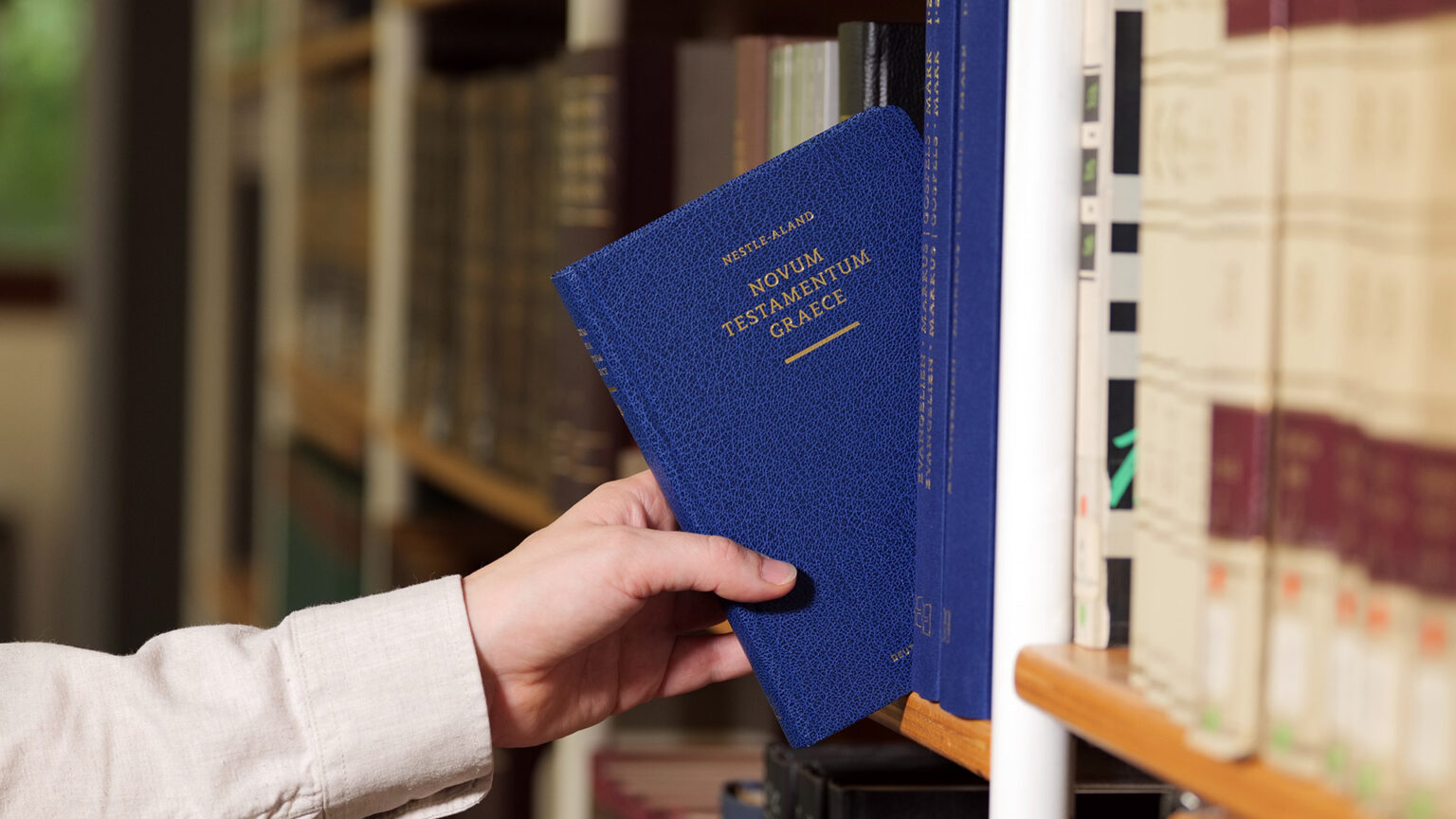Novum Testamentum Graece (Nestle-Aland)


The Novum Testamentum Graece (Nestle-Aland) and its history
The 28th Edition of the Nestle-Aland with its unreached critical apparatus marks the standard and globally preeminent reference among Greek New Testament editions.
Its Beginnings (1st Edition, 1898)
The Novum Testamentum Graece was first published in 1898 by the Württemberg Bible Society (Germany). It was edited by Eberhard Nestle and followed a simple but nevertheless ingenious principle: Nestle compared the three most significant editions of the Greek New Testament from the 19th century (Tischendorf, Westcott/Hort, and Weymouth; the last mentioned was replaced by the edition of B. Weiss in 1901). Wherever one of these versions differed from the other two, Nestle adopted the reading given in the two identical versions and supplied a note in the apparatus showing the divergent reading. By this means, he grouped together the best findings of New Testament textual research from the 19th century and prevented one-sided views from becoming established. Nestles edition, due to its wide distribution, ultimately displaced the “Textus Receptus”, which among scholars had already long become obsolete, in churches and schools.
Further developments up to the present day
13th Edition (1927): The text of the 1st Edition was reprinted several times in subsequent years. Under Erwin Nestle, a son of Eberhard, this edition was for the first time further developed with the addition of its own apparatus criticus that cited not only other scholarly editions (see above), but also the most important reference manuscripts (“Manuscript xy reads: ...”). However, Nestle did not consult the manuscripts directly, but continued to compile his information on their readings from other scholarly editions.
25th Edition (1963): Kurt Aland (co-editor since 1952) was the first to verify the information in the text and critical apparatus against the originals themselves. Together with his colleagues at the Institute for New Testament Textual Research (INTF), which he established in 1959, he also extended the apparatus to include readings from many additional manuscripts. This new approach reached its early culmination in 1963 with the 25th Edition (thereafter known as “Nestle-Aland”), which has been frequently reprinted. 26th Edition (1979):
The great manuscript discoveries of the twentieth century (especially of early papyri) necessitated a fundamental reorientation of the principal text and a rewriting of the apparatus, and these were both introduced in the 26th Edition. Ongoing work on both the Novum Testamentum Graece and the Greek New Testament (published in 1975: see below) was now being overseen by the same Editorial Committee (formed in 1955), and the principal text of the former edition was now identical to that of the latter one. The two most widely used scholarly editions of the Greek New Testament have thus since shared the same biblical text and differ merely in terms of their apparatuses, introductions, and appendices.
27th Edition (1993): In this revision, the text-critical apparatus in particular was once more extensively modified with a view to enhanced reliability and reader-friendliness.
28th Edition (2012): This edition had to accomplish two different tasks. First, the apparatus had to be revised thoroughly to give it more clarity and make it easier to use. Secondly, the text-critical in-sights and decisions resulting from work on the Editio Critica Maior of the Greek New Testament had to be incorporated.
Result: The Nestle-Aland Novum Testamentum Graece, from its first edition to the present day, has provided an outstanding working text suitable for study and research, as well as for church and school use, in a compact, affordable edition. It puts its readers in a position to make their own judgments in matters of New Testament textual research. An international and interconfessional editorial board is currently preparing the 29th edition. It will bring many changes, especially in the Gospel of Mark and the Acts of the Apostles.
